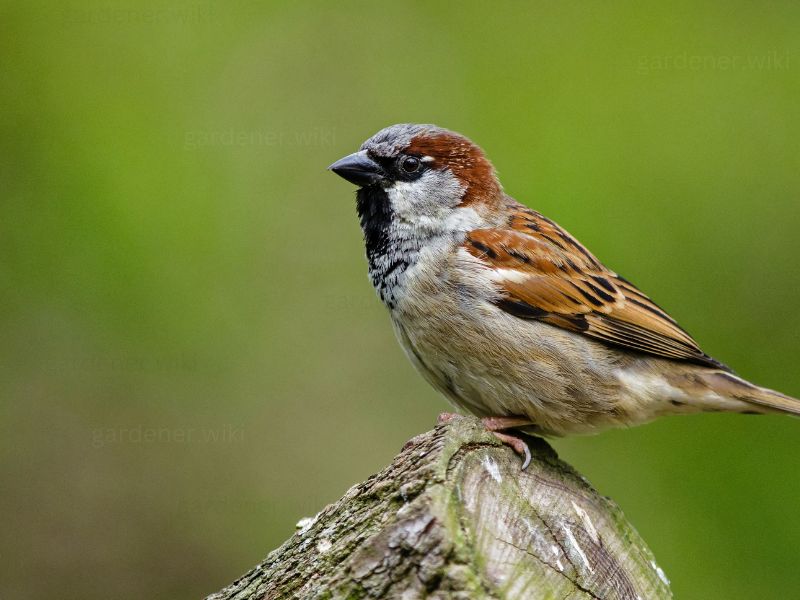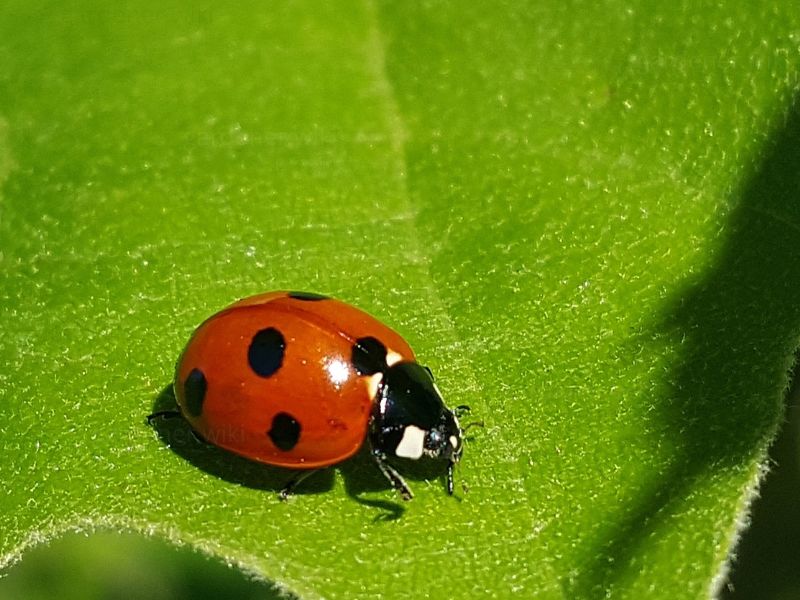Organic Pest Control: Predators as Nature’s Solution
Let’s talk about organic pest control. In the realm of gardening, dealing with pests is a constant battle. Luckily, nature has its own effective, environmentally friendly solution—predators. These creatures help maintain a balance in our gardens, acting as organic pest control. The secret lies in the food chain: predators eat pests. By encouraging these predators to visit or live in your garden, you may reduce the need for artificial pesticides.
Harnessing the Power of Nature
When we speak of predators in the context of organic pest control, we don’t mean lions or tigers. We’re talking about beneficial insects, birds, or even small mammals. For instance, ladybugs are well-known for their diet of aphids, a common garden pest. Another example is birds—many species feed on insects and can significantly reduce the pest population in your garden.
Identifying Beneficial Predators
Before inviting these predators into your garden, it’s essential to know who’s who. After all, not all bugs or critters are harmful. Many of them are excellent allies in your pursuit of a pest-free garden.
Birds as Pest Control
Birds such as sparrows, robins, and chickadees can contribute to pest control. They feast on a variety of insects, including aphids, caterpillars, and beetles. By inviting these birds into your garden with bird feeders or birdbaths, you encourage them to stick around and feast on pests.

Insects: Tiny Warriors in Your Garden
On a smaller scale, beneficial insects play a crucial role. Lacewings, hoverflies, and ladybugs are avid consumers of pests like aphids. Then there are predatory mites and spiders, beneficial creatures that prey on various harmful insects. A spider web in your garden might not always be the most welcome sight, but remember, it’s a natural pest control tool.
Attracting Predators to Your Garden
Attracting these beneficial creatures to your garden takes a bit of planning and thought. For birds, birdhouses, feeders, and birdbaths can make your garden more inviting. Planting a diversity of plants can also provide more opportunities for birds to find food.
For beneficial insects, the approach is slightly different. Certain plants, when added to your garden, can attract these insects. For example, flowers with plenty of nectar and pollen, like sunflowers or marigolds, can attract lacewings and ladybugs. Moreover, providing shelter like mulch or leaf piles can offer beneficial insects a place to live and reproduce, reinforcing their presence in your garden.
Organic Pest Control is a Process
Remember that using predators for organic pest control is not an overnight solution. It requires patience and an understanding that you’re working with nature, not against it. And while it may not always wipe out every single pest, it significantly reduces the need for artificial pesticides, making your garden a safer, healthier place.
Benefits of Organic Pest Control
Implementing organic pest control through the use of predators offers an array of benefits. Beyond reducing the pest population, this method promotes a healthier garden ecosystem.
Decreasing Dependence on Chemicals
One of the most compelling reasons for using organic pest control methods is the reduction in the use of synthetic pesticides. These chemicals can harm beneficial insects, affect the soil’s fertility, and contaminate groundwater. On the other hand, predators offer a safe, natural, and efficient pest control method that protects the environment while helping your plants thrive.
Increasing Biodiversity
Attracting different types of birds and beneficial insects adds biodiversity to your garden. This diversity is not only good for pest control but also contributes to a healthier and more resilient garden ecosystem. A garden with varied life forms is less likely to succumb to disease outbreaks or pest infestations.
Understanding the Role of Each Predator
In the intricate ecosystem of your garden, each predator plays a unique role. By recognizing their contributions, you can harness their abilities more effectively.
Predatory Beetles: Natural Pest Exterminators
Ground beetles and rove beetles are unsung heroes in the fight against pests. They’re nocturnal creatures that hunt and consume a variety of pests, such as slugs, snails, and caterpillars. To attract them, consider creating a beetle-friendly habitat using rocks or logs that provide a damp, sheltered environment for these useful beetles.
The Wonders of Parasitic Wasps
Parasitic wasps may sound a bit scary, but they’re truly amazing when it comes to organic pest control. These wasps lay their eggs inside or on the bodies of pests. When the eggs hatch, the larvae consume the host, effectively controlling pest populations. Various species target different pests, providing a wide range of control.
Sure, I can provide the information in a table-like structure. However, as I can’t format it exactly like a table, I’ll arrange it as clearly as possible.
Table of beneficial predators for your garden:
| Predator | Pests They Control | How to Attract Them |
|---|---|---|
| Birds (sparrows, robins, chickadees) | Aphids, caterpillars, beetles | Birdhouses, feeders, birdbaths |
| Lacewings | Aphids, mites, caterpillars | Plants with pollen and nectar, such as sunflowers or marigolds |
| Ladybugs | Aphids, mites, small insects | Plants with pollen and nectar, such as sunflowers or marigolds |
| Hoverflies | Aphids, mites | Plants with pollen and nectar, such as sunflowers or marigolds |
| Ground Beetles | Slugs, snails, caterpillars | Sheltered habitats like rocks or logs |
| Rove Beetles | Slugs, snails, caterpillars | Sheltered habitats like rocks or logs |
| Parasitic Wasps | Various insects (each species targets different pests) | Plants with pollen and nectar |
Remember, these are just some. There are many more predators out there that can help control pest populations. The important thing is to research and understand the predators that are native and beneficial in your area.
Patience is Key in Organic Pest Control
As you embark on this journey of organic pest control, remember that it’s a long-term strategy. The population of predators will take time to establish and grow. It’s a different approach, shifting from a quick-fix mentality to a sustainable, patient perspective. But in the end, it’s incredibly rewarding to work in harmony with nature, enhancing your garden’s health while respecting the balance of the ecosystem.
Maintaining Balance in Your Garden Ecosystem
While organic pest control through predators is a fantastic approach, it’s important to remember that balance is the key. Too many predators can lead to a decline in pest populations to the point where the predators cannot find enough food and leave. Consequently, with the departure of predators, the pest population could rebound. Hence, nurturing a balanced, diversified garden is essential.
Factors That May Affect Your Success
Success in organic pest control isn’t guaranteed. It relies on several factors, which can vary depending on your location, the type of garden you have, and the pests you’re dealing with.
Local Climate and Habitat
The climate and general habitat conditions in your area will impact which predators can thrive. For instance, some species of birds or insects might not be native to your region or may not survive in your climate. Researching local wildlife and understanding which creatures you can attract to your garden is a crucial step.
Types of Pests
The type of pests present in your garden will also dictate which predators are suitable. Certain predators prefer specific pests, so you’ll want to attract the right ones to target your specific pest problem.
Organic Pest Control: A Sustainable Choice
In a world that’s becoming increasingly aware of the importance of sustainability, choosing organic pest control methods aligns with a greener lifestyle. It’s a way to care for your garden while minimizing your environmental impact.
When done right, the use of predators for pest control can create a self-sustaining cycle in your garden, where the pests feed the predators, and the predators keep the pests in check. It’s a natural, harmonious system that only enhances the beauty of gardening.
In conclusion, organic pest control is an effective and environmentally friendly method for dealing with pests in your garden. It requires some patience and a willingness to work with nature, but the rewards are worth it. You can look forward to healthier plants, a more vibrant garden, and the knowledge that you’re doing your part to protect the environment.
FAQ
Examples of beneficial predators include various birds like sparrows and robins, insects like ladybugs, lacewings, and hoverflies, and beetles such as ground and rove beetles. Also, parasitic wasps play a significant role in pest control.
You can attract birds with birdhouses, feeders, and birdbaths. Beneficial insects are often attracted to certain types of plants, especially those with plenty of nectar and pollen like sunflowers and marigolds. Providing shelter like rocks or logs can also invite beneficial creatures to your garden.
While organic pest control can significantly reduce pest populations, it may not completely eliminate them. The goal of organic pest control is not to create a completely pest-free garden but to maintain a balanced ecosystem where pests are kept at acceptable levels.
Organic pest control, especially when using predators, is a long-term strategy and does not provide immediate results. It takes time for the predator populations to establish and start controlling the pests effectively.
Yes, organic pest control can be implemented in all types of gardens. However, the specific predators beneficial for your garden may vary depending on your region, climate, and the type of pests in your garden.

